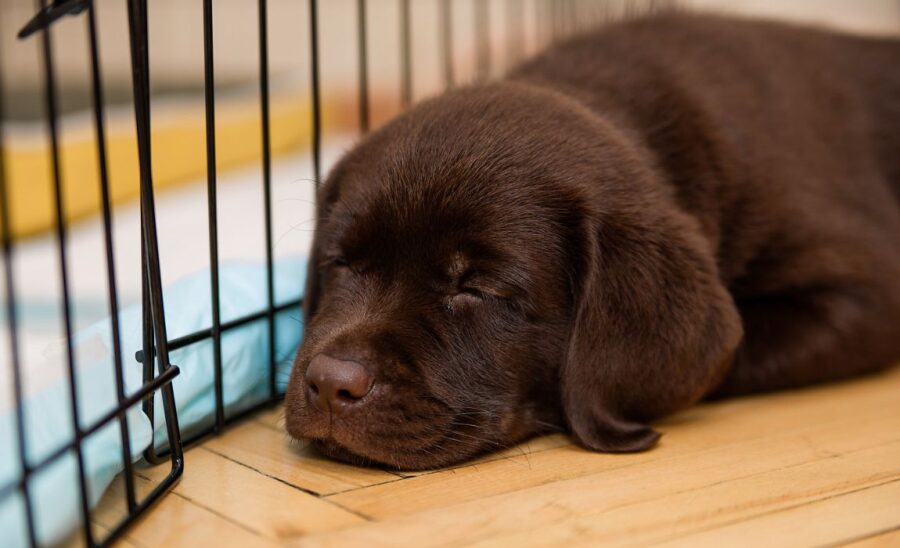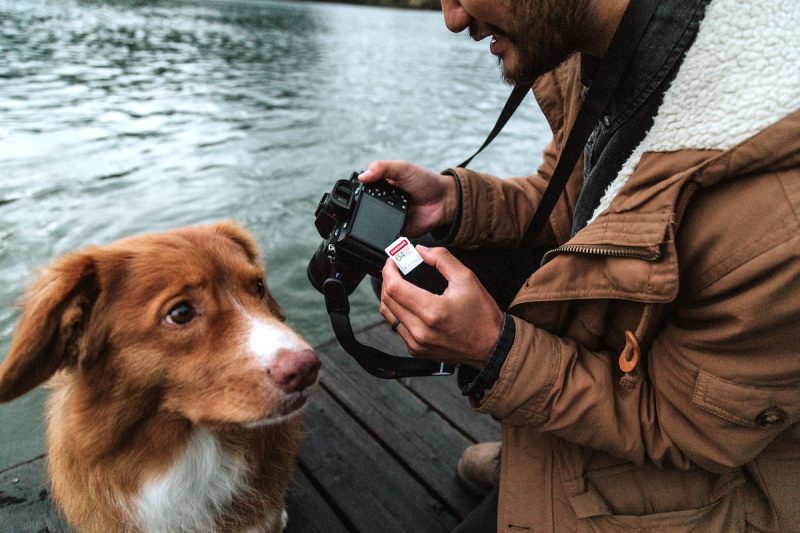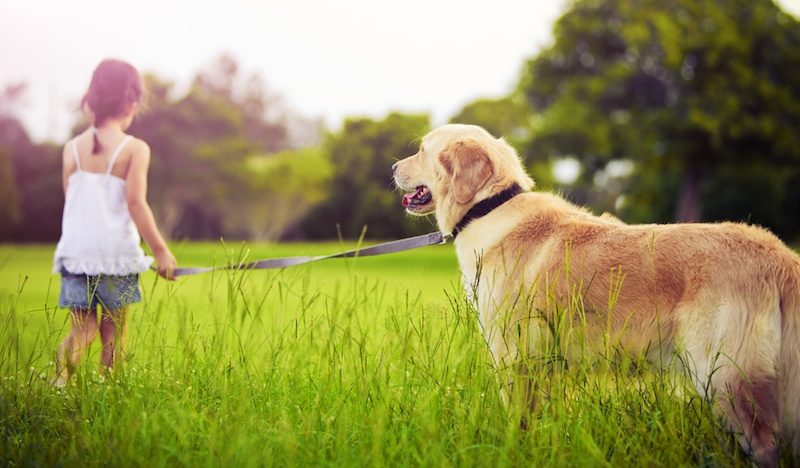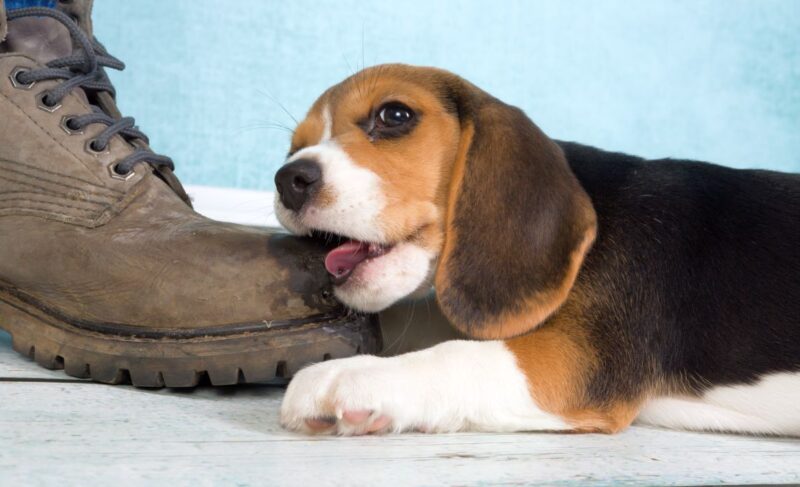From the time they’re born, most puppies have multiple sisters or brothers keeping them company.
These littermates are an important part of those first weeks of development, leading many owners to wonder: do puppies remember or miss their siblings once separated?
We’ll answer this — and explain some of the other important dog sibling issues — below.
Key Takeaways: Do Puppies Miss Their Siblings?
- No one knows for sure, but puppies probably experience a bit of stress when they’re initially separated from their siblings. However, most will adjust to their new sibling-free life very quickly and likely experience no lasting distress.
- Puppy sibling relationships help the little pups learn about interacting with other creatures (including people). So, it is important to take puppy socialization seriously, once the little waggers are separated.
- It’s usually not a great idea to adopt or purchase two siblings. Sometimes, owners who bring home two siblings end up experiencing additional headaches (not to mention, two puppies are a lot more work than one), so it’s generally discouraged.
Do Puppies Miss Their Siblings?

Dogs tend to base their worldview on routine and associations.
Puppies will develop a strong association with their siblings in those first few weeks of life, since littermates serve as playmates and provide an opportunity for socialization that helps the young canines develop confidence.
A puppy’s life is pretty small, consisting mostly of eating, getting comfort from mom, playing with siblings, and sleeping.
When this familiar, sibling-centric environment is disrupted, the pups are bound to experience some stress. Nevertheless, puppies will adjust — particularly if they’re provided with love and stimulation from their new human family.
As pet parents, we need to provide plenty of socialization and training to create new, positive associations with our dog’s new environment. Over time, young puppies will begin to consider their human families as their “pack” (not literally — your new puppy won’t think you are actually dogs).
In the event that a dog were to meet up with his sibling down the line, he may recognize his littermate’s scent, but this certainly isn’t guaranteed.
So in short – yes, puppies miss their siblings at first. But they quickly get over it.
Dogs don’t really have the mental capacity to reflect on their early-life peers, so they won’t really “miss” their siblings in the way a human might. They certainly aren’t wondering what their brothers or sisters are or how their lives have faired.
But, being taken from the only family and environment you’ve ever known is certainly traumatic, and in that sense, a puppy will initially experience distress not having their furry siblings alongside them as they always have been before.
Often, new puppies get along well with older pets, who’re already living in their new home. But there are exceptions, and problems occasionally occur.
Accordingly, it is always wise to introduce your new puppy to your older, resident dog properly.
Dog Sibling Basics: What’s Life Like for New Puppy Brothers & Sisters?

If puppies won’t necessarily “miss” their siblings once they’ve adjusted to a new home, why is it so critical that they spend their first 8 weeks of life amongst their littermates?
For the most part, early sibling interaction helps developing puppies learn basic social skills like playing, bite control through play, communication, conflict resolution, and behavioral limits.
This early period spent with their siblings helps young puppies to build a strong social and behavioral foundation, which will prepare them for the rest of their lives.
In some cases, a dog may be born without siblings (referred to as “singletons”), though this is pretty rare. And these single pups often do struggle more with understanding dog body language, partly due to their lack of siblings.
If you think about your own upbringing, you might recall ways in which your own siblings furthered your own developmental growth by teaching you how to deal with conflict (for better or for worse).
The same is true for pups!
Siblings help dogs begin learning about the world in a safe, controlled environment.
When you bring your puppy into a new environment, it’s up to you to pick up the slack. Don’t worry — we have a puppy socialization checklist to help you stay on top of the critical puppy socialization period, which usually lasts up until about 16 weeks of age.
Getting your first pet? We’ll tell you what to expect when getting a new puppy!
Should You Adopt or Purchase Puppy Siblings?

Whenever two siblings end up going to the same forever home, it’s critical that each dog is given separate, individual attention to help them build independence and bond with their pet parents.
Some breeders won’t even allow puppies of the same litter to go to the same home due to something called “littermate syndrome.”
Littermate syndrome is the widely-held theory that bringing home two siblings can result in two adult dogs who are overly dependent on one another.
While there are no empirical studies on the theory of littermate syndrome, anecdotally there is plenty of evidence that young puppy siblings raised together can struggle more with building canine confidence, and many end up so enmeshed with each other that they can experience extreme distress when separated.
This is also what is commonly referred to as a “bonded pair” at animal shelters. A bonded pair is a set of two dogs that are so emotionally distressed when separated that they must be walked together, sleep together, and (hopefully) be adopted together.
This isn’t to say that bringing home two puppies of the same litter will automatically turn them into co-dependent dogs attached at the hip — if you commit to giving each pup plenty of individualized training, playtime, and socialization away from their sibling, they may turn out just fine.
Whether littermate syndrome is a serious risk or not, one thing is for sure: One puppy is a ton of responsibility on its own; two puppies is more than a lot of people can handle!
So, it’s generally best to bring home one pooch at a time.
Whether you bring home one new puppy or two, you’ll want to lay down the right kind of training and socialization foundation.
And there’s no better way than by using our Puppy Raising Blueprint!
An easy-to-follow, multi-part video course led by trainer, behavior consultant (CDBC), and K9 of Mine contributor Kayla Fratt, this series will explain everything you need to know to get your new pupper started on the right paw.
From puppy-proofing your home to learning to read body language to dealing with common behavioral problems, this course has it all!
Best of all, you can get 50% off the course if you act now!
Dog Sibling FAQ

Are you gearing up to bring home a new furry friend? Here are some commonly asked questions and answers surrounding puppies and their siblings.
How long does it take for a puppy to forget his siblings?
It’s unclear whether or not dogs hold a strong memory of their siblings or their scent. Dogs probably aren’t capable of recollection of reflection in the way humans practice it.
Being separated from littermates is just one component that factors into the challenging adjustment period a puppy experiences when he first arrives in his new home. A distressed puppy is likely upset about leaving the only home and environment they’ve known — regardless of having their sibling around or not!
With the help of socialization opportunities, top-notch care, and a whole lot of love, most puppies open up to their new owners within a month or so of coming home.
Do puppies get attached to their siblings?
Puppies naturally attach to their mothers, siblings, and environments during their first few weeks of life. However, after adjusting to a new home, most dogs won’t yearn for the companionship of their siblings so long as they’re given the care and attention they deserve.
They might recognize the scent of their siblings if they were to meet again, but they’ll associate cuddles and comfort with their new families.
Do puppies know their siblings after being separated?
It’s possible that dogs could recognize their siblings later in life based on memory of their scents. However, the lack of continued association is unlikely to produce a strong, long-lasting connection that would lead a dog to “miss” their other littermates.
Is it cruel to separate dog siblings?
It is not cruel to separate dog siblings as puppies since young dogs are still building their foundational attachments with the world around them.
If you take home a pooch and provide him with the love and care he deserves, he’s bound to be a happy hound. In some cases, taking home two dogs may lead to “littermate syndrome,” a phenomenon that could cause puppies raised together to exhibit co-dependency and other behavioral issues.
However, in the case of rescue dogs or any dogs that have bonded together over multiple months or years, these dogs should be kept together if at all possible. It’s best to avoid strong codependency if possible, but if circumstances have led two dogs to grow up together, they should stay together to help maintain stability and limit distress.
Do dog siblings get along?
Some dog siblings get along but others don’t. In some cases, sibling dogs will be attached at the hip. In others, siblings may regularly get into fights.
In general, it’s best to stay safe and focus your attention on one new furry family member at a time.
When should dogs be separated from their siblings?
The right age of separation from littermates and parents can be different for every dog, but most professionals recommend pups be separated from their family within a window somewhere between 8 and 12 weeks.
Smaller breed dogs may need more time to develop with their litter before going home. Generally speaking, puppies that are ready to go home should be fully mobile, well socialized with littermates, and eating solid food.
Is it a good idea to get two dogs from the same litter?
Typically, it’s best to refrain from purchasing two dogs from the same litter. Dogs adopted together may be more prone to exhibiting aggression or extreme codependence, and they may become anxious whenever separated, even for a brief period.
Opting for one pooch at a time also gives your dog undivided attention during those first critical bonding moments which are key to a strong dog and owner relationship.
In short, puppies may miss their siblings and previous environments initially. But with enough love and hard work, your dog will come to love being your furry family member!
How many siblings do dogs usually have?
Dog litter size varies with a number of things, including breed, age of the mother, and genetic lineage. However, the average litter size (across all breeds) is about five. So, most puppies will have, on average, four siblings.
***
What made your dog stand out amongst his siblings? How did your dog adjust to his new home? We’d love to hear all about it in the comments below!













Leave a Comment